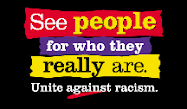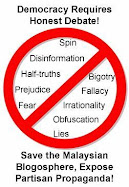In my humble opinion, the Mahatma's greatest achievement was in leading oppressed people to freedom. This is a very difficult undertaking, requiring great courage and ability, physical, intellectual, emotional and moral. The oppressors whom he faced were very powerful and ruled with an iron fist, yet the Mahatma was able to bring about change in a peaceful and ethical way. In a world where "one man's terrorist is another man's freedom fighter", and where the ends are held to have justified the means, the Mahatma stands out as a shining example of how one man can make a difference for the better. As Albert Einstein said of him, "Generations will scarce believe that such a one as this ever in flesh and blood walked upon this earth."
What were the personal characteristics that set the Mahatma apart? I believe that he had a very strong sense of values and principles by which he lived and by which he guided the struggle. Among these principles were (adapted from Wikipedia):
- Truth: Gandhi dedicated his life to the wider purpose of discovering truth, or Satya. Gandhi summarized his beliefs first when he said "God is Truth". He would later change this statement to "Truth is God". Thus, Satya (Truth) in Gandhi's philosophy is "God".
- Non-violence: Although Mahatama Gandhi was not the originator of the principle of non-violence, he was the first to apply it in the political field on a huge scale. In his own words, "There are many causes that I am prepared to die for but no causes that I am prepared to kill for."
- Simplicity: Gandhi earnestly believed that a person involved in social service should lead a simple life. His simplicity began by renouncing the western lifestyle he was leading in South Africa. He called it "reducing himself to zero," which entailed giving up unnecessary expenditure, embracing a simple lifestyle and washing his own clothes.
- Faith: Gandhi was born a Hindu and practised Hinduism all his life, deriving most of his principles from Hinduism. As a common Hindu, he believed all religions to be equal, and rejected all efforts to convert him to a different faith. Gandhi believed that at the core of every religion was truth and love (compassion, nonviolence and the Golden Rule). He also questioned what he saw as hypocrisy, malpractices, and dogma in all religions, including his own, and he was a tireless advocate for social reform in religion. Later in his life when he was asked whether he was a Hindu, he replied: "Yes I am. I am also a Christian, a Muslim, a Buddhist and a Jew."
"The Satyagrahi’s object is to convert, not to coerce, the wrong-doer." Success is defined as cooperating with the opponent to meet a just end that the opponent is unwittingly obstructing. The opponent must be converted, at least as far as to stop obstructing the just end, for this cooperation to take place.I have also called it love-force or soul-force. In the application of satyagraha, I discovered in the earliest stages that pursuit of truth did not admit of violence being inflicted on one’s opponent but that he must be weaned from error by patience and compassion. For what appears to be truth to the one may appear to be error to the other. And patience means self-suffering. So the doctrine came to mean vindication of truth, not by infliction of suffering on the opponent, but on oneself.[2]
When using satyagraha in a large-scale political struggle involving civil disobedience, Gandhi believed that the satyagrahis must undergo training to ensure discipline. He wrote that it is “only when a people have proved their active loyalty by obeying the many laws of the State that they acquire the right of Civil Disobedience.”[11]
He therefore made part of the discipline that satyagrahis:
- appreciate the other laws of the State and obey them voluntarily
- tolerate these laws, even when they are inconvenient
- be willing to undergo suffering, loss of property, and to endure the suffering that might be inflicted on family and friends[11]
- harbour no anger
- suffer the anger of the opponent
- never retaliate to assaults or punishment; but do not submit, out of fear of punishment or assault, to an order given in anger
- voluntarily submit to arrest or confiscation of your own property
- if you are a trustee of property, defend that property (non-violently) from confiscation with your life
- do not curse or swear
- do not insult the opponent
- neither salute nor insult the flag of your opponent or your opponent’s leaders
- if anyone attempts to insult or assault your opponent, defend your opponent (non-violently) with your life
- as a prisoner, behave courteously and obey prison regulations (except any that are contrary to self-respect)
- as a prisoner, do not ask for special favourable treatment
- as a prisoner, do not fast in an attempt to gain conveniences whose deprivation does not involve any injury to your self-respect
- joyfully obey the orders of the leaders of the civil disobedience action
- do not pick and choose amongst the orders you obey; if you find the action as a whole improper or immoral, sever your connection with the action entirely
- do not make your participation conditional on your comrades taking care of your dependents while you are engaging in the campaign or are in prison; do not expect them to provide such support
- do not become a cause of communal quarrels
- do not take sides in such quarrels, but assist only that party which is demonstrably in the right; in the case of inter-religious conflict, give your life to protect (non-violently) those in danger on either side
- avoid occasions that may give rise to communal quarrels
- do not take part in processions that would wound the religious sensibilities of any community
I believe that if we Malaysians want to bring much needed change to our country in a sustainable, peaceful and ethical way, we need to practice the Mahatma's principles. Where do we start? In the words of the Mahatma himself: "You must be the change you want to see in the world."

Mahatma Gandhi speaking: God is Life, Truth, Light, Love and The supreme Good
Sincerely,
Malaysian Heart























No comments:
Post a Comment
How to Paste Text into Comment Boxes
Google seems to have disabled pasting text (including ctrl-v) into blogger comments boxes in Firefox. The good news is that:
1. You can still copy paste using Internet Explorer (I successfully tried it with IE7)
2. With Firefox, you can still "Drag and Drop" text into the comment form. I have successfully dragged and dropped text from MS Word, websites (HTML) and from ScribeFire (plain text and HTML). Just do the following:
a) reduce the size of the window you want to take the text from, and place it near the comment box
b) Highlight the required text with cursor
c) Click on the highlighted text and drag it over to the comment box and drop it there.
Happy commenting!